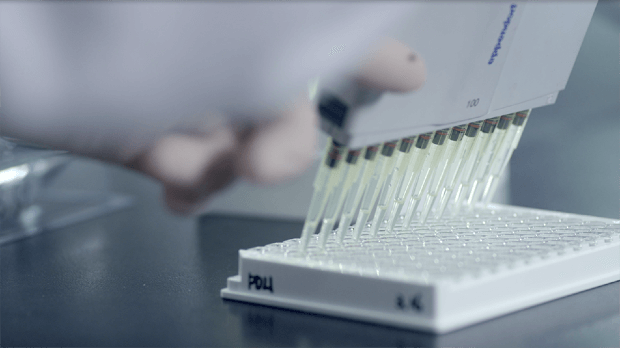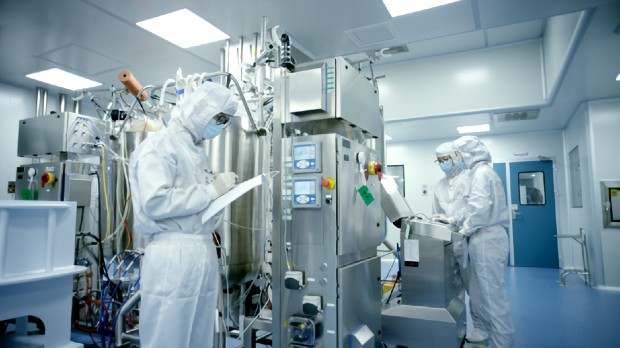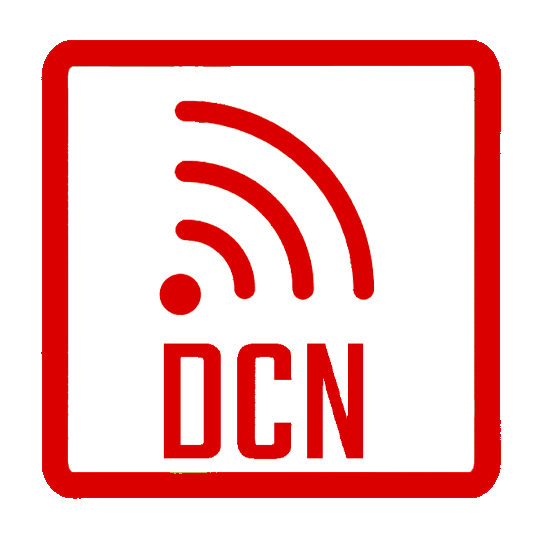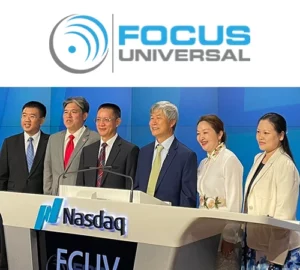Below is our recent interview with Shuhan Jin, Brand & PR Manager at Akeso, Inc.:
Q: Could you provide our readers with a brief introduction to your company
A: Akeso, Inc. (9926.HK) is a biopharmaceutical company dedicated to the research, development, manufacturing and commercialization of new innovative antibody drugs that are affordable to patients worldwide. Since establishment, we have established an end-to-end comprehensive drug development platform (ACE Platform) and system, encompassing fully integrated drug discovery and development functions, including target validation, antibody drug discovery and development, CMC production process development, and GMP compliant scale production. We have also successfully developed a bispecific antibody drug development technology (Tetrabody technology). Akeso currently has a pipeline of over 20 innovative drugs for the treatment of major diseases like tumors, autoimmune diseases, inflammation and metabolism diseases, 13 of which have entered clinical stage, including two first-in-class bispecific antibody drugs (PD-1/CTLA-4 and PD-1/VEGF). Our vision is to become a global leading biopharmaceutical company through research and development of high efficacy and breakthrough new drugs that are first-in-class and best-in-class therapies.
Q: Any highlights on your recent announcement
A: Earlier this year, we released our consolidated results for the year ended December 31, 2020. This is also the first annual report Akesobio published since we are successfully listed on the Stock Exchange of Hong Kong main board in April, 2020.
The annual results showed that Akesobio’s research and development innovation has entered harvest time. Significant progress has made with respect to core antibody product pipelines.
Cadonilimab (AK104), Akesobio’s self-developed globally first-in-class PD-1/CTLA-4 bispecific antibody drug, is expected to submit the new drug application for treatment of cervical cancer in 2021 and become the the first PD-1 based bispecific antibody drug worldwide. Cadonilimab (AK104) clinical trial for treating patients with recurrent or metastatic cervical cancer has completed patient enrollment and obtained the “Breakthrough Therapy Designation” from the National Medical Products Administration (NMPA) of China, obtained orphan drug designation and fast track designation from the Food and Drug Administration of the United States (FDA).
Penpulimab (AK105), the PD-1 monoclonal antibody novel drug, which Akesobio co-developed with Sino Biopharmaceutical Limited (stock code: 1177. HK), has successfully submitted NDA for the treatment of relapsed or refractory classical Hodgkin’s lymphoma in 2020. In the same year, Penpulimab obtained breakthrough therapy designation, orphan drug designation and fast track designation from the FDA for third-line treatment of patients with metastatic nasopharyngeal carcinoma. Currently, Penpulimab has submitted a Biologics License Application (BLA) to the FDA for third-line treatment of metastatic nasopharyngeal carcinoma under the new policy of Real-Time Oncology Review (RTOR).
AK112, a first-in-class and globally first to enter clinical trial stage PD-1/VEGF bispecific antibody independently developed by Akesobio. Major indications include lung cancer, solid tumor, gynecological tumor, etc. 6 of its researches are at Phase Ib/II clinical stage. The AK112 project has been incorporated in the Major New Drug Innovation Program under China’s national 13th Five-year Plan for Major Technology Project.
AK117, a novel CD47 monoclonal antibody independently developed by Akesobio, is the next-generation broad-spectrum anti-tumor hot target with world-leading clinical progress. Major indications include solid tumor, lymphoma, myelodysplastic syndromes, leukemia, etc. 3 of its researches are currently at Phase Ib/II clinical stage.
AK119, a next-generation CD73 monoclonal antibody independently developed by Akesobio, it is of immuno-oncology therapy hot target with world-leading clinical progress. Major indications include COVID-19 and solid tumor, 3 of its researches are at Phase I or II clinical stage in China, the U.S. and New Zealand. The AK119 project has also been incorporated in the Major New Drug Innovation Program under China’s national 13th Five-year Plan for Major Technology Project.
In oncology, immunology and other therapeutic areas, Akesobio has in total over 20 products, including 6 bispecific antibodies, are in research and development, among which more than 40 clinical trials of over 13 products are efficiently in progress world-wide, 9 clinical trials are at registrational or phase III stage, 4 registrational trials have reached key endpoints. 3 clinical trials at registrational stage have obtained 17 new IND approvals. Over 2,000 patients were dosed in world-wide clinical trials and over 126,000 vials of drugs manufactured.
Meanwhile we continued to increase input in research and development. For the past 12 months, Akesobio’s research and development staff have increased by 146.1%, research and development expenses increased by 149.2%.
Akesobio has been widely recognized by the global capital market as well. Recently on May 13, 2021, we are included as a constituent stock of the MSCI China Index. We were also listed on HKEx and included in Hang Seng Index Components like HSCI and HSHKBI.

Q: Can you give us more insights into your “immuno-oncology era 2.0” bispecific antibody drug pipelines?
A: Immuno-oncology therapy has been recognized as the epochal breakthrough in oncotherapy, represented by the development and commercialization of PD-1 drugs, it has brought new therapeutic hope to cancer patients worldwide and marked the immuno-oncology therapy era 1.0. But as a broad-spectrum anti-tumor drug, PD-1 cannot really solve all problems. Seeking a therapy that is better in effectiveness and safety than PD-1 is proposition of immuno-oncology therapy era 2.0. Bispecific antibody drug is one of the core directions for development.
As the pioneer of bispecific antibody drug development in China, Akesobio has established the encompassing drug discovery and development system since founding, the system’s core is composed by comprehensive drug development platform (ACE Platform) and a bispecific antibody drug development technology (Tetrabody). The company’s exclusive “Tetrabody” technology provides druggable bispecific antibody and has tackled bispecific antibody’s major challenges in CMC and clinical aspects. So far the company has independently developed various leading bispecific antibody products, including the globally first-in-class PD-1/CTLA-4 bispecific antibody Cadonilimab (AK104), PD-1/VEGF bispecific antibody (AK112), PD-1/CD73 bispecific antibody (AK131), PD-1/LAG3 bispecific antibody (AK129).
With Cadonilimab (AK104) and AK112 already introduced as core pipelines above, here will only extend to briefly talk about PD-1/CD73 bispecific antibody (AK131) and PD-1/LAG3 bispecific antibody (AK129).
Developed by Akesobio independently, AK131 is a bispecific antibody targeting human CD73 and PD-1. It can simultaneously bind to human CD73 and PD-1, relieve tumor immunosuppression through complementary and non-overlapping pathways. It is expected to become a new method for the treatment of tumors.
Self-developed by Akesobio, AK129 is a PD-1/LAG3 bispecific antibody simultaneously targeting two immunosuppressive receptors PD-1 and LAG3. LAG3 and PD-1 synergistically inhibit the anti-tumor immune response. AK129 can block LAG3 to increase the T cell immune response and block PD-1 to promote the synergistic enhancement of immune response, and further improve the activity of immune cells and enhance the anti-tumor immune response.
Q: What can we expect from your company in next 6 months. What are your plans?
A: We will speed up the submission of new drugs for regulatory assessment and approval, the preparation for production and commercialization of drugs and the global development of our business. We will continue to push forward the clinical test of the existing and proposed pipeline products in China and overseas (including the United States) and the preparation for the commercialization of the pipeline products.
We expect that the new drug application for Penpulimab (AK105, PD-1) will be approved in 2021 (for treatment of patients with classical Hodgkin’s lymphoma that has relapsed or refractory after second or more systemic chemotherapy ). This will make Penpulimab Akesobio’s first product to go on market. The new drug application for Penpulimab for first-line treatment of squamous non-small cell lung cancer will also be submitted in 2021. It is expected that the new drug application for Cadonilimab (AK104, PD-1/CTLA-4) for second- and third-line treatment of cervical cancer will be submitted in the second half of 2021.
In the near future, We anticipate that the demand of our drug candidates will increase and intend to expand our GMP production capacity in accordance with the requirements of the United States, China, Japan and European Union. The establishment of the new manufacturing facilities in Guangzhou has gone into operation in March 2021. The facilities will initially accommodate bioreactors of total capacity as high as 20,000 L. The construction of our technology centre in Kangfang Bay of Cuiheng New District in Zhongshan has commenced. According to our initial plan, the new manufacturing facilities will have additional production capacity of 40,000 L.

Q: What else is worth mentioning about your company that people might not know about
A: Akesobio was founded in China, 2012 by four scientists broadly experienced in biopharmaceuticals in both China and overseas. The founding team has always believed in the value of developing genuinely innovative drugs. With its rich drug candidate pipelines and rapid R&D progress, Akesobio has been tagged as “China’s new pharmaceutical power” at the global stage. The company is one of representatives of China’s biopharmaceutical innovation companies.
As early as 2015, Akesobio out-licensed its CTLA-4 antibody (MK-1308), which can be used as a treatment for cervical cancer, to American pharmaceutical company Merck for a total consideration of US$200 million, which made Akesobio the first China-based biotech company to out-license a fully internally-discovered monoclonal antibody to a global pharmaceutical company, according to Frost & Sullivan.






